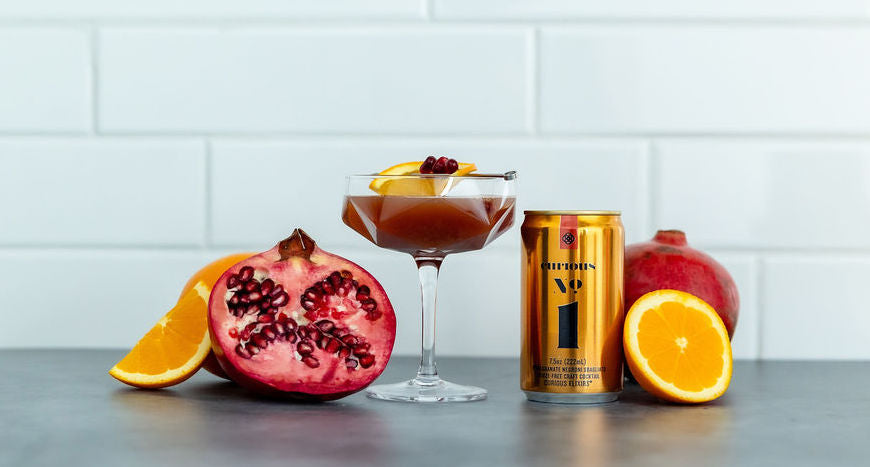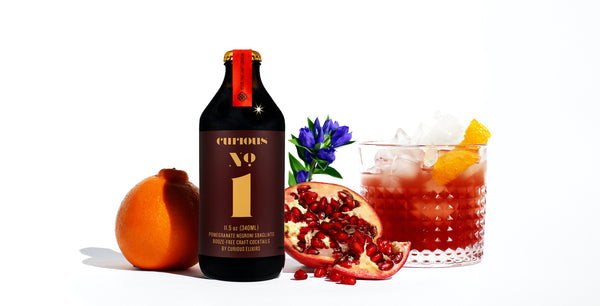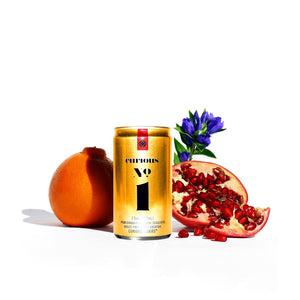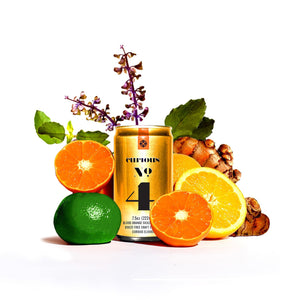Rhodiola: The History of the Golden Root
Posted by Curious Elixirs on
Sure, our OG Elixir No. 1 contains the adaptogen rhodiola — but what does that really mean? Read on for a crash course on the storied past of this multi-functional plant!
Let’s go way back
Rhodiola has been used as a natural treatment for a LONG time. We’re talking Rome in 77 A.D. Historically, the plant’s medicinal qualities were so renowned that Emperors sent foraging expeditions to Mongolia to collect what was known to imperial China as “golden root,” and Central Asian traders could exchange the dried plants in neighboring regions for wine, honey, and fruit. Over in Scandinavia, Norse warriors ate rhodiola as a kind of Viking pre-workout, to increase their physical stamina and strength.
Golden root in a golden can: try our new No. 1 mini cans!
So…how did it get all the way over here?
The story of this little succulent’s journey from the Altai Mountains to America’s supplement shelves reads like a 20th century spy thriller. When scientists in the Soviet Union began studying Rhodiola rosea in the early 1960s, they discovered the plant offered protection against physical exhaustion, psychological stress, altitude sickness, and the cold — all rather useful qualities in the mountains of Siberia! Cosmonauts were given rhodiola extract to increase mental acuity and lower their stress reaction. Soviet Olympians ingested the herb to improve their athletic performance — and given that they still rank second for all-time Olympic medals won, even though the USSR hasn’t existed to compete for the last 30 years, it seems like it might have worked!

During the Soviet-Afghan War, Zakir Ramazanov tried rhodiola for the first time and experienced an effect similar to that touted by the Vikings: he had more energy and recovered faster from hiking through the mountains. A few years later, suffering from depression and flashbacks, Ramazanov also found relief for his PTSD from rhodiola. His experience made him an evangelist for the herb, and when the Soviet Union collapsed, he immigrated to the US, where he began importing and selling rhodiola. He also translated some of the Soviet-era studies into English. Though, according to him, even more research remains classified.
A modern-day panacea?
Luckily, interest in rhodiola has sparked more recent research published in English. The literature from rhodiola studies refers to such a wide spectrum of potential benefits that it can sometimes read like science fiction. Studies have shown that it may reduce mental stress and fatigue, increase memory capacity, raise stamina during exercise and shorten recovery time after. Rhodiola is also packed with antioxidants that reduce inflammation and protect against age and stress related cellular damage. Some small studies using rhodiola to treat mild depression and anxiety indicate that the herb does offer relief to some people, as it did to Ramazanov, with fewer side effects than pharmaceuticals. There are even promising laboratory studies that demonstrate rhodiola might halt the growth of certain types of cancer.

Our very own Curious No. 1 is infused with rhodiola, making it a great choice for after-work cocktails with friends. It dissolves the stress of the day, gives you a burst of energy, and even lets you hit the gym afterward with an extra boost if that’s your thing.
Now that’s one hard-working adaptogen!
See what all the fuss is about — try Curious No. 1 for yourself!

Rhodiola image credit: bethchatto.co.uk
Please note: While the research on rhodiola is promising, it’s important to always speak to a doctor or medical professional before ingesting any active botanical, especially in combination with or instead of prescribed medications. These statements have not been evaluated by the Food and Drug Administration. This product is not intended to diagnose, treat, cure, or prevent any disease.
← Older Post Newer Post →













